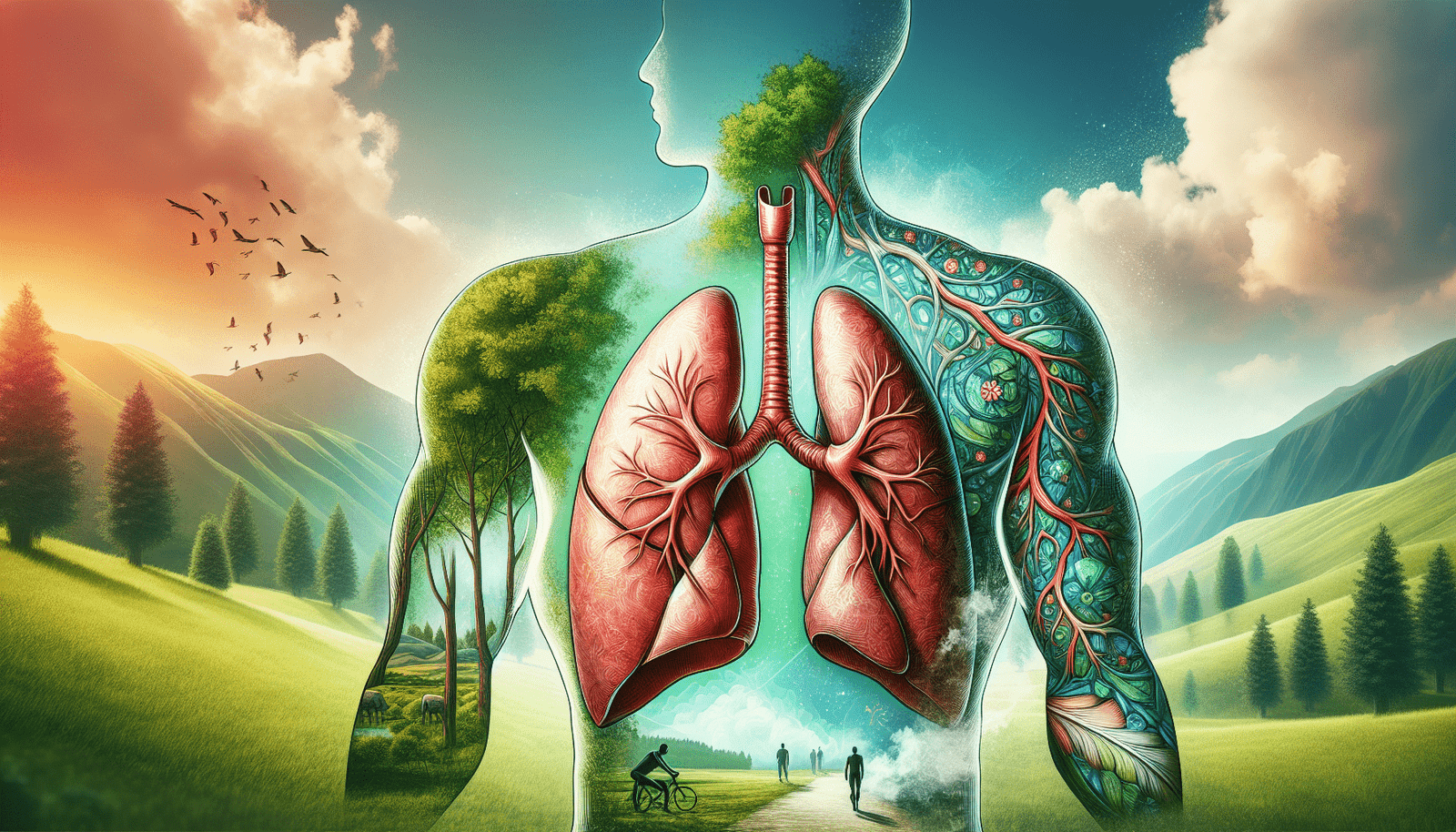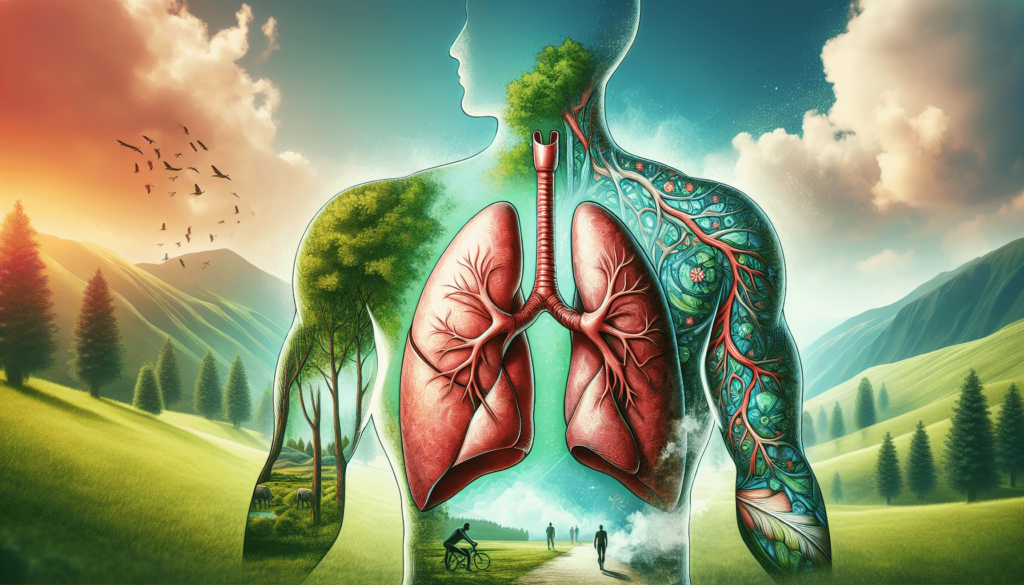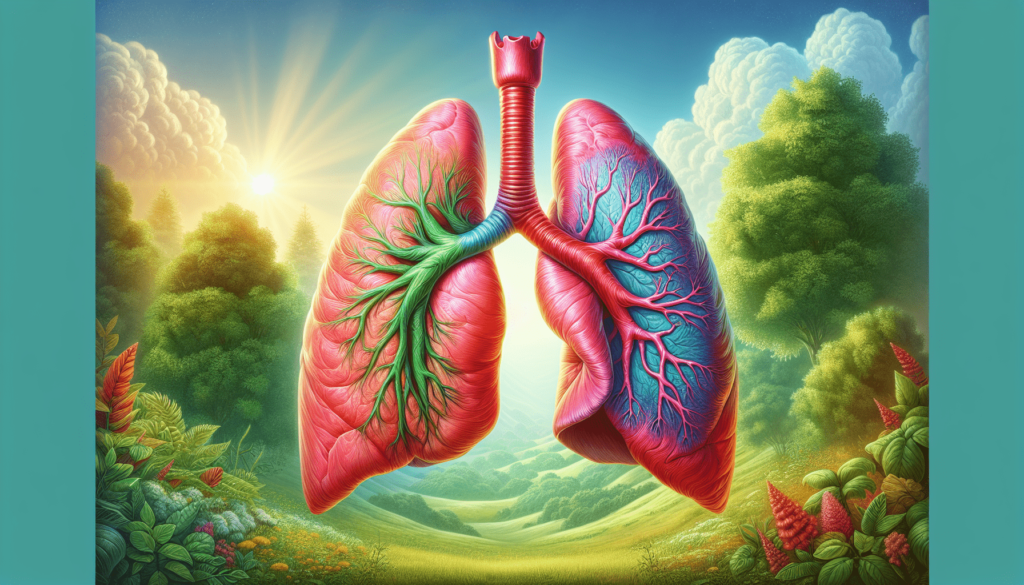
In “How To Achieve Better Lungs: A Comprehensive Guide,” I delve into the crucial steps for maintaining optimal lung health. People often overlook the significance of protecting their lungs, but it’s essential to prioritize them as we do with our hearts or muscles. We can significantly enhance our respiratory well-being by avoiding pollutants, quitting smoking, and even making small lifestyle changes like incorporating houseplants to purify indoor air. This guide offers practical advice to safeguard our lungs from environmental hazards and highlights the importance of regular medical check-ups and vaccinations. My journey toward healthier lungs has taught me that consistent effort leads to long-term benefits.
How To Achieve Better Lungs: A Comprehensive Guide

How Can You Improve Your Lung Health?
Have you ever wondered, “How can I strengthen my lungs?” Breathing is such an automatic and vital part of our lives that we often overlook the significance of maintaining lung health. Today, I will share everything you need to know about achieving better lungs, from protecting them to simple exercises and lifestyle changes that can make a difference.
Protecting Lungs: Why It’s Crucial
Ensuring your lungs are protected is the foundation of good respiratory health. Without this, efforts to improve lung capacity and function can be futile. Think of it as setting the groundwork for any future improvements you’ll make.
Avoiding Pollutants
The first line of defense is minimizing your exposure to harmful pollutants. We breathe in various substances daily, some of which can harm our lungs.
- Tobacco Smoke: It’s no surprise that smoking seriously damages your lungs. But remember, even secondhand smoke can be equally harmful. If you can’t quit smoking immediately, reducing the number of cigarettes can be the first step.
- Air Pollution: The main sources include car exhaust, industrial emissions, and chemical fumes. Consider using air purifiers at home and avoid outdoor activities when the air quality is poor.
- Indoor Pollutants: For example, radon gas, dust, mold, and household chemicals can all affect your respiratory health. Proper ventilation and regular cleaning can mitigate these risks.
Preventing Infections
Your lungs are susceptible to infections, which can cause long-term damage if not addressed promptly.
- Vaccinations: Staying up to date with vaccines like the flu shot and pneumonia vaccine can keep these infections at bay.
- Hygiene: Regular handwashing and avoiding close contact with sick individuals can significantly reduce the risk of respiratory infections.
- Hydration and Nutrition: Drinking plenty of fluids and maintaining a balanced diet rich in vitamins and minerals support your immune system, making it easier to fend off infections.
Wearing Protective Gear
Wearing appropriate protective gear is non-negotiable if your job exposes you to dust, fumes, or other lung irritants.
- Masks: Specific types like N95 or P100 masks can filter out harmful particles.
- Ventilation Systems: Proper industrial ventilation systems can reduce exposure to hazardous substances.
- Personal Protection: Items like gloves and protective clothing can prevent these substances from sticking to your skin and later being inhaled.
Building Lung Capacity
Once your lungs are protected, building their capacity is next. Think of it like exercising any other muscle in your body; the more you use it, the stronger it gets.
Breathing Exercises
- Diaphragmatic Breathing: Also known as belly breathing, it involves using your diaphragm correctly. Lie down, place one hand on your chest and another on your abdomen, breathe through your nose so your stomach pushes up against your hand, and then exhale slowly through pursed lips.
- Pursed-Lip Breathing: This technique helps you control shortness of breath. Breathe in deeply through your nose and exhale slowly through pursed lips.
Here’s a simple table to summarize these exercises:
| Breathing Exercise | How To Do It | Benefits |
|---|---|---|
| Diaphragmatic | Lie down, hand on the abdomen, and breathe deeply | Strengthens diaphragm, reduces stress |
| Pursed-Lip | Breathe in through the nose, out through pursed lips | Controls shortness of breath, improves ventilation |
Cardiovascular Exercise
- Endurance Activities: Walking, running, swimming, and cycling strengthens your heart and lungs, improving efficiency.
- Interval Training: Mixing short bursts of high-intensity activity with rest periods can enhance lung capacity faster than steady-state cardio.
Yoga and Pilates
These practices emphasize controlled breathing and can help you develop better lung capacity.
- Yoga combines breath control with exercises that improve flexibility and muscle strength. Poses like ‘Bridge’ and ‘Cow/Cat’ specifically help with lung expansion.
- Pilates: Pilates focuses on core strength and includes exercises that facilitate deeper breathing, helping improve lung function.
Nutrition’s Role in Lung Health
What you eat directly impacts your lung health. The proper nutrients can help reduce inflammation, enhance lung function, and prevent diseases.
Anti-inflammatory Foods
Certain foods can help reduce inflammation and protect lung tissue.
- Leafy Greens: Spinach, kale, and other leafy greens are rich in antioxidants that help reduce inflammation.
- Fatty Fish: Salmon, mackerel, and sardines contain omega-3 fatty acids.
- Fruits: Berries, apples, and pears have been linked to improved lung function due to their flavonoids and vitamins.
Vitamins and Minerals
- Vitamin C: Found in citrus fruits, peppers, and broccoli, Vitamin C is crucial for boosting the immune system.
- Vitamin E: Almonds, sunflower seeds, and green vegetables are excellent sources and help protect lung cells.
- Magnesium: It helps relax the muscles of the respiratory tract and can be found in nuts, seeds, and whole grains.
Hydration
Staying hydrated keeps the mucosal linings in the lungs thin, aiding the lungs in functioning better.
- Water: Aim to drink at least eight glasses of water per day.
- Herbal Teas: Peppermint and eucalyptus teas can help soothe the respiratory tract.

Understanding and Managing Chronic Conditions
If you have chronic lung conditions like asthma or COPD (Chronic Obstructive Pulmonary Disease), managing them effectively is crucial to maintaining good lung health.
Asthma
Asthma is when your airways narrow, swell, and produce extra mucus.
- Medications: Long-term control medications like inhaled corticosteroids can help reduce inflammation.
- Avoid Triggers: Identify and avoid allergens, pollutants, and stress, which can trigger asthma attacks.
- Regular Monitoring: Use a peak flow meter to monitor your lung function and inhaler use.
COPD
COPD is an umbrella term for chronic bronchitis and emphysema. It’s primarily caused by prolonged exposure to irritating gases or particulate matter.
- Medications: Bronchodilators and inhaled steroids help relax and open airways.
- Pulmonary Rehabilitation: A program that includes exercise training, nutritional advice, and education.
- Oxygen Therapy: For severe cases, oxygen therapy can help maintain the oxygen levels in your blood.
Environmental Factors
Your environment plays a significant role in your lung health. Making your living and working spaces more lung-friendly can help improve overall respiratory function.
At Home
- Air Purifiers: These help remove pollutants and allergens.
- House Plants: Certain plants, like spider and snake plants, can improve indoor air quality.
- Regular Cleaning: Dust and vacuum your home frequently to remove allergens.
At Work
- Safe Practices: Ensure proper ventilation and follow safety protocols to minimize exposure to harmful substances.
- Ergonomics: Good posture can help you breathe more efficiently, so ensure your workspace setup promotes good posture.
Psychological Well-Being and Lung Health
Believe it or not, your mental health can affect your lung function. Stress and anxiety can lead to shallow breathing or hyperventilation, which stresses the lungs.
Stress Management Techniques
- Meditation: Helps calm your mind and can improve breathing patterns.
- Deep Breathing Exercises: Regularly practicing can reduce overall stress levels.
Regular Check-Ups
It’s essential to have regular check-ups to catch any issues early on. Your healthcare provider can conduct lung function tests and take necessary action if any problems are detected.
Conclusion
Achieving better lung health involves combining lifestyle changes, exercises, proper nutrition, and good mental health. Remember, it’s never too late to start making positive changes for your lungs. These comprehensive strategies allow you to breathe easier and enjoy a healthier life.
Feel free to share any thoughts or tips on improving lung health. I’m here to help and learn alongside you!
